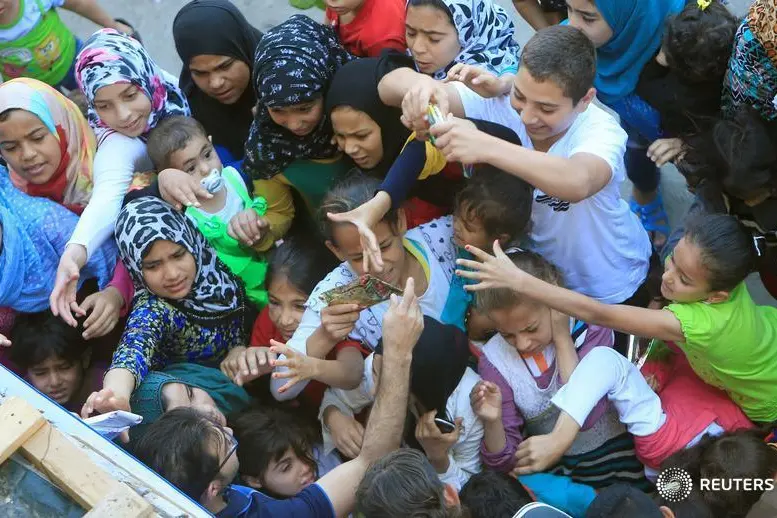PHOTO
BEIRUT - Fifty thousand Syrians have returned home from Lebanon so far in 2018 and the number could reach 200,000 in a year's time if it continues at this rate, a top Lebanese official said on Tuesday.
Major General Abbas Ibrahim, head of Lebanon's General Security directorate, told Reuters his security agency had organised the return of 25,000 Syrians in coordination with Damascus. Another 25,000 had made their own way home.
Lebanon is hosting 976,000 registered Syrian refugees, according to the U.N. High Commission for Refugees (UNHCR). The government says the total number of Syrians in the country is around 1.5 million.
Lebanese politicians have been calling for Syrian refugees to go home as President Bashar al-Assad wins back more of the country, saying Lebanon cannot cope with hosting a number of refugees equivalent to a quarter of its population.
Ibrahim is coordinating with Damascus over the return of thousands of Syrians who want to go home.
Their names are first sent to Damascus for approval. Ibrahim said on average 10 percent of them are rejected by Damascus. Anyone wanted by the Syrian authorities is told so they can decide whether to stay or go home to "settle their affairs".
The Syrian conflict that erupted in 2011 has generated 5.6 million refugees in the Middle East.
U.N. High Commissioner for Refugees Filippo Grandi said during a visit to Beirut last month that refugees were concerned about issues including the lack of infrastructure and fear of retribution and military conscription.
Ibrahim expected the pace of returns to accelerate when the fate of rebel-held Idlib province is settled, noting that many young men did not want to return for fear of being conscripted for a battle in Idlib. "When there are no longer big military battles in Syria, many young men will return," Ibrahim said.
He said Syrians are given a six-month reprieve from military service "to organise their affairs".
The UNHCR chief Grandi has said that for larger numbers to decide to go back, more confidence must be created by addressing issues of concern to refugees and UNHCR should have a presence in areas of return.
A Russian-Turkish agreement announced last week has staved off a threatened government offensive in Idlib, though the Syrian government is vowing that it will be recovered from rebels.
(Additional reporting by Samia Nakhoul and Tom Perry, Editing by William Maclean) ((mailto:thomas.perry@thomsonreuters.com; Reuters Messaging: rm://thomas.perry.reuters.com@reuters.net))





















